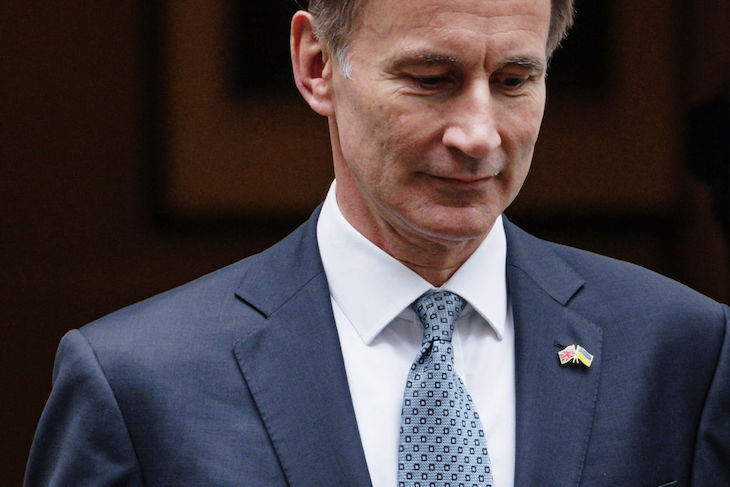Is the UK’s labour market cooling down? While unemployment remains unchanged at 3.7 per cent, according to today’s update from the Office for National Statistics, the number of job vacancies ‘fell on the quarter for the eighth consecutive period’, down 51,000. The overall number of vacancies, however, still remains above a million.
But the biggest indicator things are changing is wage growth: the rise in average total pay fell to 5.7 per cent between November last year and January this year, down from 5.9 per cent in the previous three months. Adjusting for inflation, this means real wages fall by 3.2 per cent – the biggest fall since the pandemic hit, not to mention one of the biggest falls since records began in 2001.
These wage figures will shape the Monetary Policy Committee's (MPC) decision when it meets next to vote on interest rates. The Bank of England’s governor Andrew Bailey has been keen to stress that he does not want to weigh in on any political decision over wages (particularly public sector wages and the ongoing strikes for inflation-linked demands). Bailey has not-so-subtly made his concerns about a potential ‘wage spiral’ well known.
Just last month, Bailey told the Treasury Select Committee that employers and wage-setters needed ‘to be forward looking here’: suggesting that potential pay rises should take into account the Bank’s predictions that inflation will fall rapidly this year (so far the headline rate has been coming down, but at snail-pace).
Today’s wage news will provide the MPC with slight relief: it makes it more likely the committee either opts to hold the base rate at 4 per cent, or proceed with a smaller interest rate hike. Chances are they will be looking for an excuse to slow down, too: not only does the MPC have dovish tendencies to begin with, but the growing number of vulnerabilities being exposed by interest rate hikes (including the collapse of Silicon Valley Bank) has many people wondering what else could be round the corner.
But while this wage-cooling may be a gift to the MPC, it is not good news for the government. Jeremy Hunt will pitch another Budget tomorrow to workers who are, in real terms, feeling notably worse-off. The Chancellor's announcements are not expected to offer much in the way of individual tax cuts: this means the tax burden and inflation will continue to eat away at people’s salaries, detracting from the benefits that might have been felt by recent pay raises.
Hunt, however, is expected to address the millions of out-of-work people across the UK. Those announcements can't come soon enough: today’s labour market update shows that the economic inactivity rate decreased again, but only slightly: down 0.2 per cent on the quarter, largely due to the organic transfer of 16-24 year olds from school to work.







Comments